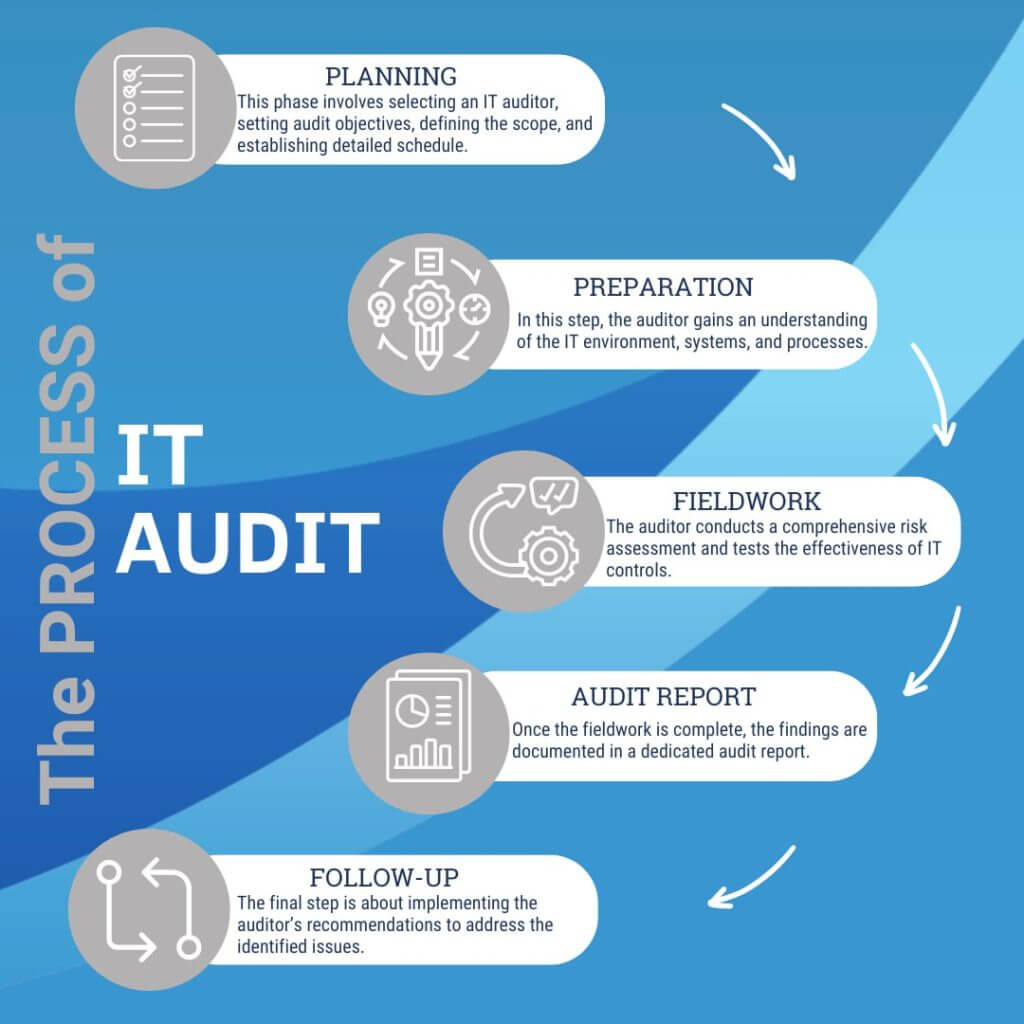Netcomp IT Audit Services – Elevating your business’s technological integrity. Our expert team, specialising in comprehensive IT audits across Australia, ensures optimal cybersecurity, compliance, and performance. Trust Netcomp for a secure, efficient, and future-proof IT environment.


An IT audit is a detailed examination and evaluation of an organisation’s entire IT infrastructure, including its applications, data management, policies, procedures, and operational processes.
It is conducted against recognised standards or established policies to assess if the controls in place effectively protect IT assets and align with the organisation’s goals and objectives. It’s an integral part of ensuring the integrity, confidentiality, and availability of information technology systems and the data they handle.
IT audits are crucial for ensuring the safety and proper functioning of an organisation’s IT operations, controls, infrastructure, and processes. They help in identifying areas of improvement and vulnerabilities to mitigate IT risks and ensure compliance with IT security standards.
Regular IT audits contribute to enhancing IT service management policies and processes, aligning them better with the business objectives. They also aid in discovering new technologies for efficient data management, maintaining regulatory compliance, and preventing potential losses due to IT security lapses.
The IT audit process is a structured approach to evaluate and improve an organisation’s information technology systems, ensuring they align with business goals and comply with regulations. There 5 main steps in the process:
Each step of the IT audit process is integral to ensuring that an organisation’s IT systems are secure, efficient, and aligned with its overall strategy and compliance requirements.



Our IT audit services can benefit your business in several ways:
These services aim to optimise your IT infrastructure, enhance security, and improve operational efficiency.
IT audits are essential for any organisation seeking to maintain the integrity and reliability of its IT infrastructure. They are crucial for assessing risk, ensuring data integrity, maintaining compliance with standards and laws, and aiding in business continuity.
Regular IT audits are recommended to keep pace with evolving cybersecurity threats and technology changes.
IT audits can vary in focus and scope. Common types include:
An effective IT audit covers several key areas:
An IT audit evaluates your organisation’s IT infrastructure, policies, and operational processes. It’s like a health check-up for your company’s technology systems, aiming to ensure everything is secure, up-to-date, and aligned with your business goals. It identifies potential risks, verifies IT control practices, and finds inefficiencies in IT processes, helping your business adapt to evolving security needs and standards.
The two primary types of IT auditing are general control review and application control review. General control review focuses on the overall IT environment, including infrastructure and policies, while application control review is more specific, examining particular systems and applications for efficiency, security, and compliance with standards.
Key areas of an IT audit include:
Planning an IT audit involves:
An IT auditor is a professional responsible for inspecting an organisation’s IT infrastructure to identify risks, inefficiencies, and non-compliance issues. They play a key role in enhancing security standards, obtaining certifications, and improving data management. IT auditors often hold certifications like CISA (Certified Information Systems Auditor) or CISSP (Certified Information Systems Security Professional).
The main objectives of an IT audit are to ensure the security of IT assets, maintain data integrity, check compliance with regulations and standards, and align IT operations with organisational goals. It aims to identify potential risks to information assets, suggest improvements, and ensure that IT controls are effectively protecting the company’s digital environment.